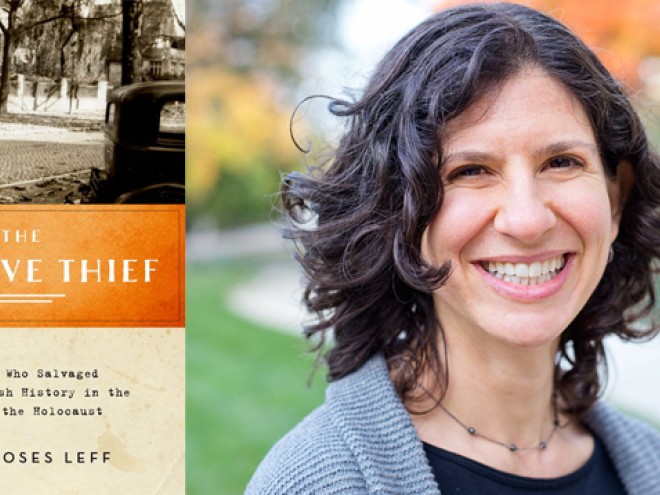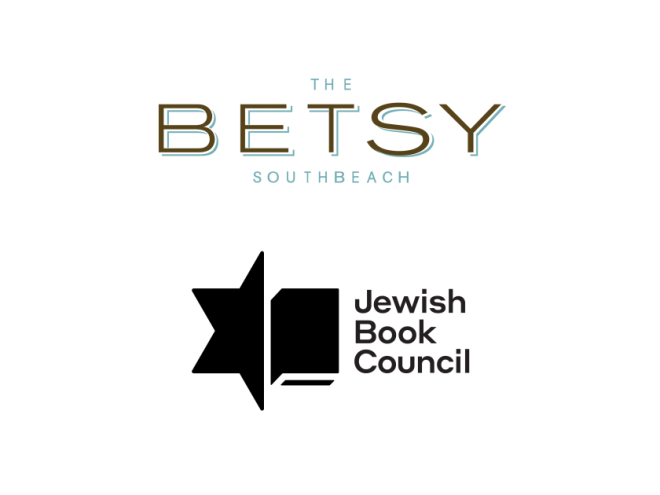 Shulem Deen is the author of the recently published memoir All Who Go Do Not Return (Graywolf Press).
Shulem Deen is the author of the recently published memoir All Who Go Do Not Return (Graywolf Press).
JBC Staff: I think that sometimes the way in which people are put into this genre of OTD or ex-Hasidic memoir forecloses questions around the writer and the craft of what they’re doing. There’s a lot of attention on the content, but I think sometimes the stylistic elements and the craft that you’re engaging in as a writer falls by the wayside.
Shulem Deen: I’m very strongly of the opinion that if you’re going use an art form to tell your story be passionate about that art form as an art form, not just think, “Oh, I want to get my story out and therefore, okay, fine l’ll write it because it looks like an easy thing to do.”
I get a lot of people who say to me, “It’s so great that you wrote your story. I hope to publish mine too one day.” I try not to get too irritated and usually I just say, “Oh, that’s absolutely great. You should do it.”
But the truth is, what I really want to say is: “are you passionate about writing? Do you appreciate good writing? Do you write? You know you want to write a book, but have you written an essay? Have you done something short? Do you care about crafting sentences? Do you care about storytelling?”
In my case, I wanted to write a book. I had an aspiration to be a writer. As of the day my book was published, I am a writer. But I had an aspiration to be a writer, not to tell my story. This was a very difficult choice when I actually decided that my first book was going to be a memoir. I wanted to write a novel. But I kind of realized fairly quickly that my agent would be very willing to represent me for a memoir. For a novel, I would have to write it first. Then do all that work, learn how to write, make sure it’s really good, have it stand out, then try to shop for an agent who would then try to shop for a publisher. Add to that the fact that I’m a nobody. I don’t come from an MFA writing program where people develop certain connections. I came from nowhere.
Given the realities of how art and commerce intersect, these are important considerations — especially if you want to use your art not only as art, but also in some way to sustain yourself. You want to be able to make art. And in order to make art, it needs to give something in return and pay your rent. There are very few people who can make art purely just for making art and not care whether they will be making money from it.
We all know the cliché is the starving artist. It’s not practical to starve. Because if you starve, you won’t be able to do any more art.
Originally when I was writing, people would say to me, “What are you writing?” And I would say, “You know, I’m writing a memoir about my experience of growing up in the Hasidic world and then leaving it.” People would say, “Oh, that’s been done.”
It’s not really about the newness of this story, it’s about writing a really compelling narrative. And the art of it. And the craft of it.
JBC Staff: I have a vague memory of you telling me of another title for the memoir when you were earlier in the writing phase. Wasn’t it supposed to be entitled “Shaygetz”?
SD: Originally my agent and I had a discussion. The first discussion, we talked about submitting a proposal. And he said, “OK, we’re going to have to think of a title. Do you have any thoughts on it?” as I was leaving.
And I said, “Well, I don’t know. I’ve been kind of struggling. I’m not sure what to call this book.”
And he said, “But what kind of words come to mind?”
“I don’t know, maybe something with the word, ‘shaygetz,’ in it.”
And he said, “what’s it mean?”
“Shaygetz means traditionally a non-Jewish person or even a Jewish person who’s not behaving the way they should behave.”
I love that word. I was thinking, “The Journeys of a Shaygetz.” “The Diaries of a Shaygetz.” I don’t know. Something like that. I wasn’t even thinking. It was just a word that had just popped into my head.
And he said, “I love it. And how about we do it on the cover, we write this word, and we have a little dictionary, a graphic element, that will explain it.”
SHAYGETZ: NOUN. Non-Jewish hoodlum. Definition number two? A lapsed Jewish person. And then definition number three? Vermin.
It would be kind of provocative and interesting. But also it sounded like he thought that it was a sensationalist thing. He liked the foreignness of it. He liked the fact that there was something unfamiliar, yet intriguing.
And this was also a way to avoid the kind of straightforward “title, colon, subtitle.” Right? Like Unorthodox: My Scandalous Journey Away From Whatever. I was trying to avoid something like that. I wanted to just have a title. Something with “scandalous” in it just sounded so grotesque to me — to put on your book. My personal aesthetic is one that says, “Let’s keep things a little bit more subtle.”
But the fact is that I was never comfortable with that. I never liked the name because shaygetz has a connotation among Yiddish speakers, especially in the Hasidic world, of being something sensational, something very crude, something very crass. It didn’t feel like it really represented me. People in the Hasidic world might call me a shaygetz. But the truth is that they are probably unlikely to. They’re more likely to use other names for me. Like shaygetz is, to some degree, mild compared to what they would call me. They would call me a Posha Yisroel or an Oicher Yisroel. A Posha Yisroel—that’s what they would say. Somebody who is so evil, a really wicked, wicked person.
JBC Staff: What are the conditions of possibility that allow for your father and mother to retain their anti-authoritarian ideology, that allowed your father to declare: “ich bin a chusid fun aybershten” [“I am a Hasid of God”]. I think you intimate it in the book, but never flesh it out explicitly. What is the relationship, in other words, between the decentralization of authority in the Hasidic world — namely, with the proliferation of multiple rebbes who claim themselves as legitimate heirs to a respective dynasty, a shift from fighting between Hasidic groups to fighting between Hasidic dynasties — and your parents’ ability to enter the Hasidic world with their anti-authoritarianism?
SD: It has always been possible to be a Hasid without being a Hasid of a rebbe. It has always been a little known secret that you could be a Hasid, but you didn’t have to be a Hasid of a rebbe. In Boro Park, in Monsey, in other places, even in Williamsburg (although in Williamsburg less so), there are many, many, many people who consider themselves Hasidish, but consider themselves Hasidish “independent” or “neutral.” That certainly exists from people who don’t quite feel connected to a particular rebbe. They might have a particular community that they feel mostly connected to — just sort of slightly touching it, but not necessarily bound to it. This is a fairly commonplace stance to be Hasidish in Boro Park, but to not feel completely connected to something.
My father also had some connection to Breslev. He had really studied a lot of Reb Nachman. And at times, had some formal attachments — he used to give shiurim [lectures] at the Breslev shul — in Boro Park when I was very little, when I was three or four.
We spent several summers in Israel. For a short period, my father put me into the Breslev seder [study session] in Jerusalem. In the end that didn’t work out. And he took me out of there and put me into the Neturei Karta seder. There was a problem with Breslev. There was a transportation issue with the bus. I’d been on the bus and they didn’t take me home. And the bus driver was driving around Jerusalem for hours because I didn’t speak Hebrew and they had no idea where to take me. And I was a five-year-old. Four and a half. And so in the end, my parents were like, “alright, let’s not do the Breslev thing. It’s too far and we have the transportation problem.” And they put me into the Neturei Karta seder.
My father had a lot of Neturei Karta sympathies, too. He was very, very anti-Zionist. He kind of romanticized the old Jerusalemite, Hanoyim, the fiercely zealously anti-Zionist.
My father had a flirtation with both of them. My father was friends with Moshe Hirsch. Moshe Hirsch was Yasser Arafat’s Minister of Jewish Affairs for many years. My father knew him well. He used to buy his esroygim from him.
JBC Staff: Also, despite his claims otherwise, wasn’t your father a bit of a shtikl rebbe [Yiddish: “a bit of a rebbe”] himself (to disciples like Shaul Magid, etc.)? Isn’t that the paradox of his legacy?
SD: He was a very complicated person. He commanded a kind of — I hesitate to use this word — but he commanded a kind of cult following. I’m so afraid of using the word “cult” because cult has such a negative connotation, but there was something that was very powerful about his persona that made people enthralled. I don’t think it’s anything that he consciously cultivated. But he was an eccentric. There was no question of that. His lifestyle was very eccentric.
What’s interesting is that in that Sun interview is that he mentions that Judaism is very suspicious, very weary, of the ascetic lifestyle. And yet he really led that ascetic lifestyle.
I don’t think he was so anti-authoritarian in principle. I just think that he hadn’t found some authority beyond texts that he felt he needed to attach to. It’s maybe a little bit unusual within the Hasidish world. But not entirely unusual. Primarily in the Hasidish world, they take upon their own kind of authority and gain a following. There’s just as much a tradition of that. Most rebbes who became rebbes, at least the ones who established courts. The first rebbes early on, established themselves. Later came the history of the dynastic leadership model. In the very beginning, the Baal Shem Tov has no real yichus [pedigree] that we know of.
I think specifically people who join it tend to see counter-cultural aspects in the Hasidish world really magnified in ways that are not really true I think. I think this is true of my parents. I don’t really think they understood the Hasidish world when they joined it. And I don’t really think they really understood the Hasidish world throughout their living within it.
My mother never understood that sending me to seder wearing suspenders to hold up my pants in a world where everybody wears a belt is going to be such a strike against me in the social hierarchy of our cheder. But she had absolutely no concept of that. So I think my parents were very naïve. I think they thought Hasidim are something completely different than what Hasidim really are. And I think this is common among Baalei Teshuva [born-again Jews].
Related Content:



